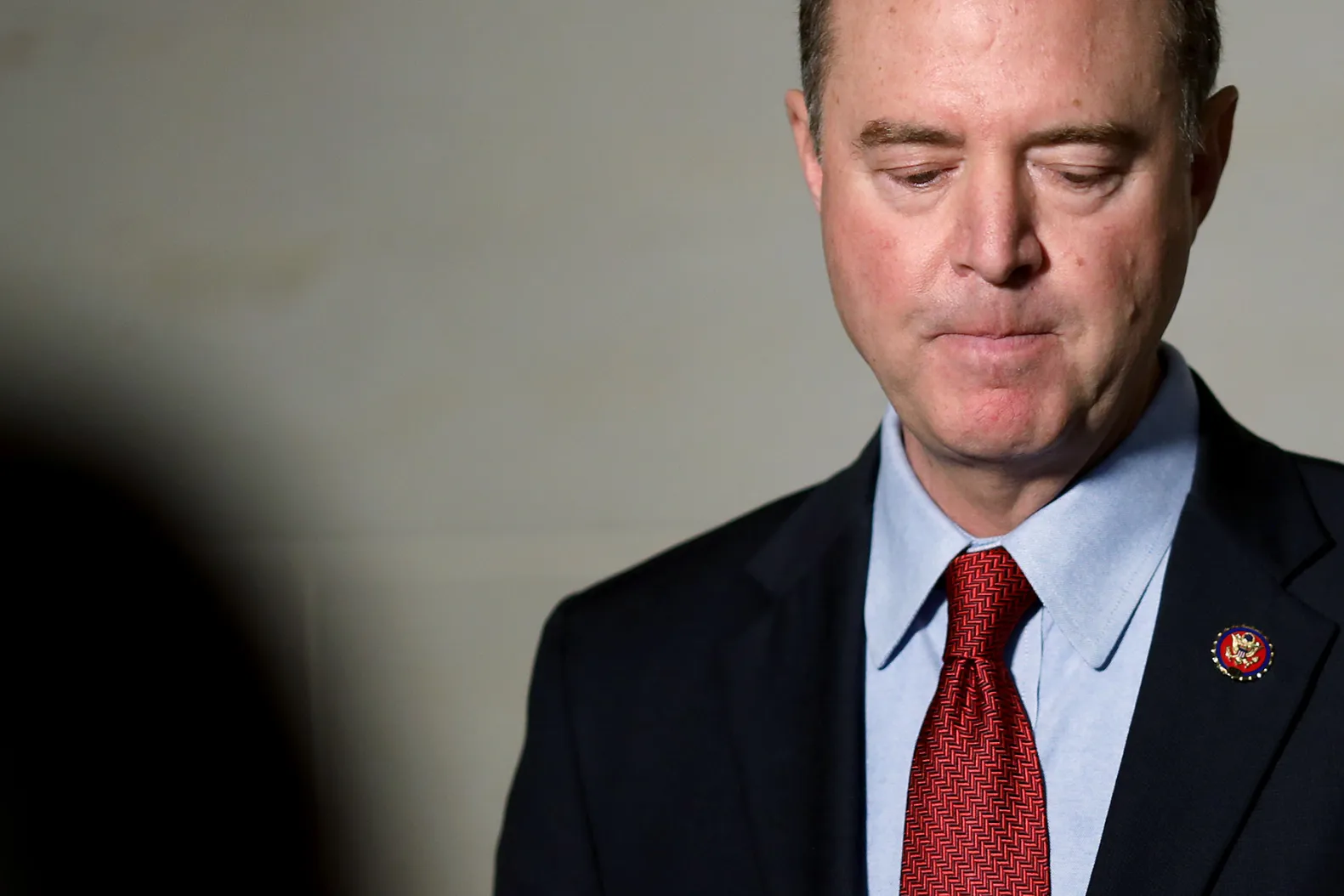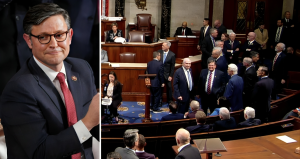Newly released FBI interview records and allegations from a former congressional staffer have placed Sen. Adam Schiff under new scrutiny. The documents, which were recently declassified, have revived years-old claims that classified information may have been improperly shared during the Trump–Russia investigation. The allegations, if proven, could lead to serious legal consequences. And while no charges have been filed, the renewed interest has prompted broader questions about oversight, accountability, and the way intelligence information is handled inside Congress.
This article examines what is known, what is newly documented, and what is still unclear.
A Whistleblower Steps Forward
The allegations stem from a former Democratic committee staffer who worked more than a decade on the House Intelligence Committee. According to FBI interview summaries, the whistleblower told federal agents in 2017 that then–Rep. Adam Schiff authorized or encouraged the leaking of classified material to the press. The whistleblower claims these leaks were intended to damage then-President Donald Trump during the period when intelligence agencies were scrutinizing Russian interference in the 2016 election.
The whistleblower says the remarks were made in front of staff during an internal meeting. He recalls objecting at the time, arguing that sharing classified information for political purposes would be both unethical and harmful. His account alleges that he was pushed out shortly after raising concerns to superiors and attempting to notify federal authorities.
The authenticity of the whistleblower’s account will likely remain the core question, as the FBI has not publicly confirmed or disputed it.
The Role of the FBI and What the Documents Show
The newly declassified reports describe FBI conversations with the whistleblower in two different time periods — once in 2017 and again in 2023. In both instances, he claimed to have repeated the same allegations. According to the documents, the bureau did not take investigative action beyond recording his statements. The whistleblower believes the information went ignored, though the FBI has not commented on its internal decision-making.
The lack of follow-up is now drawing its own attention. Critics of the bureau, including some former Justice Department officials, say the agency has shown reluctance to investigate politically sensitive matters. Supporters of the FBI argue that the bureau may not have found enough corroboration to proceed and that whistleblower testimony alone is rarely sufficient to support a criminal case.
Without internal FBI commentary, the reasoning remains unknown.
Legal Experts Weigh In
Former federal prosecutor Brett Tolman, reviewing the matter publicly, described the legal stakes if any leak occurred and prosecutors could prove intent. Leaking classified information carries federal financial penalties that can reach hundreds of thousands of dollars. Tolman warned that every alleged leak constitutes a separate count, meaning potential fines could multiply depending on the scope of the charges.
Beyond monetary penalties, Tolman noted that if a leak appears designed to influence government operations or interfere with official proceedings, prosecutors could consider additional charges under conspiracy or obstruction statutes. None of these possibilities have been confirmed or pursued, but the discussion illustrates the seriousness of the allegations if evidence were ever produced.
Tolman made it clear, however, that treason — a term often used loosely in political conversation — is highly unlikely to apply here, given its strict legal definition.
Context: The Years of Political Tension
The whistleblower’s allegations sit within a period marked by intense political conflict and partisan division. Schiff was among the most visible congressional voices during the Trump–Russia investigation, frequently appearing on television and leading high-profile committee hearings. Supporters say he was acting on evidence and fulfilling his oversight role. Critics say he overstated the strength of intelligence assessments.
Even now, public perception of Schiff’s role during those years varies widely. Some Americans view him as a defender of institutional norms. Others see him as a political figure aligned with a specific narrative. That divide shapes the way many read these new allegations.
Schiff’s Previous Responses
Though Schiff has not commented on the newly surfaced documents, he has repeatedly denied past accusations of leaking classified intelligence. He has characterized such claims as inaccurate and politically motivated. Schiff has also defended the work of the House Intelligence Committee during his time as ranking member and later as chairman, arguing that the oversight duties of the committee require confronting difficult and sometimes politically sensitive information.
It remains unknown whether Schiff will offer a fresh statement in light of the declassified FBI records.
The Broader Debate Over Handling Classified Material
The resurfacing of these allegations has revived public debate over how elected officials handle sensitive information. Members of Congress routinely receive classified briefings. That unique access comes with legal responsibilities but also political pressure. The challenge lies in balancing transparency, public communication, and national security.
Oversight experts argue that because this balance is so delicate, allegations of intentional leaks — whether they involve Schiff or any other member — must be examined carefully. Yet they also caution against assuming guilt based on allegations alone.
There is also renewed discussion about whether Congress should revise the rules governing access to classified information, increase safeguards, or formalize penalties for mishandling material inside congressional offices, areas where the legal framework is often less defined than in the executive branch.
What Happens Next?
At this stage, the situation is still developing. No formal investigation has been announced. No charges have been filed. Congressional committees have not signaled a new inquiry. And the FBI has not commented on its past decisions or indicated plans to reopen the matter.
What is certain is that the issue is not fully settled. The combination of declassified documents, a whistleblower’s longstanding claims, and renewed public scrutiny ensures that questions will continue — both about the conduct of elected officials and the processes inside federal agencies.
Whether this ultimately results in legal action, congressional review, or a clarification from Schiff remains to be seen.

Emily Johnson is a critically acclaimed essayist and novelist known for her thought-provoking works centered on feminism, women’s rights, and modern relationships. Born and raised in Portland, Oregon, Emily grew up with a deep love of books, often spending her afternoons at her local library. She went on to study literature and gender studies at UCLA, where she became deeply involved in activism and began publishing essays in campus journals. Her debut essay collection, Voices Unbound, struck a chord with readers nationwide for its fearless exploration of gender dynamics, identity, and the challenges faced by women in contemporary society. Emily later transitioned into fiction, writing novels that balance compelling storytelling with social commentary. Her protagonists are often strong, multidimensional women navigating love, ambition, and the struggles of everyday life, making her a favorite among readers who crave authentic, relatable narratives. Critics praise her ability to merge personal intimacy with universal themes. Off the page, Emily is an advocate for women in publishing, leading workshops that encourage young female writers to embrace their voices. She lives in Seattle with her partner and two rescue cats, where she continues to write, teach, and inspire a new generation of storytellers.









